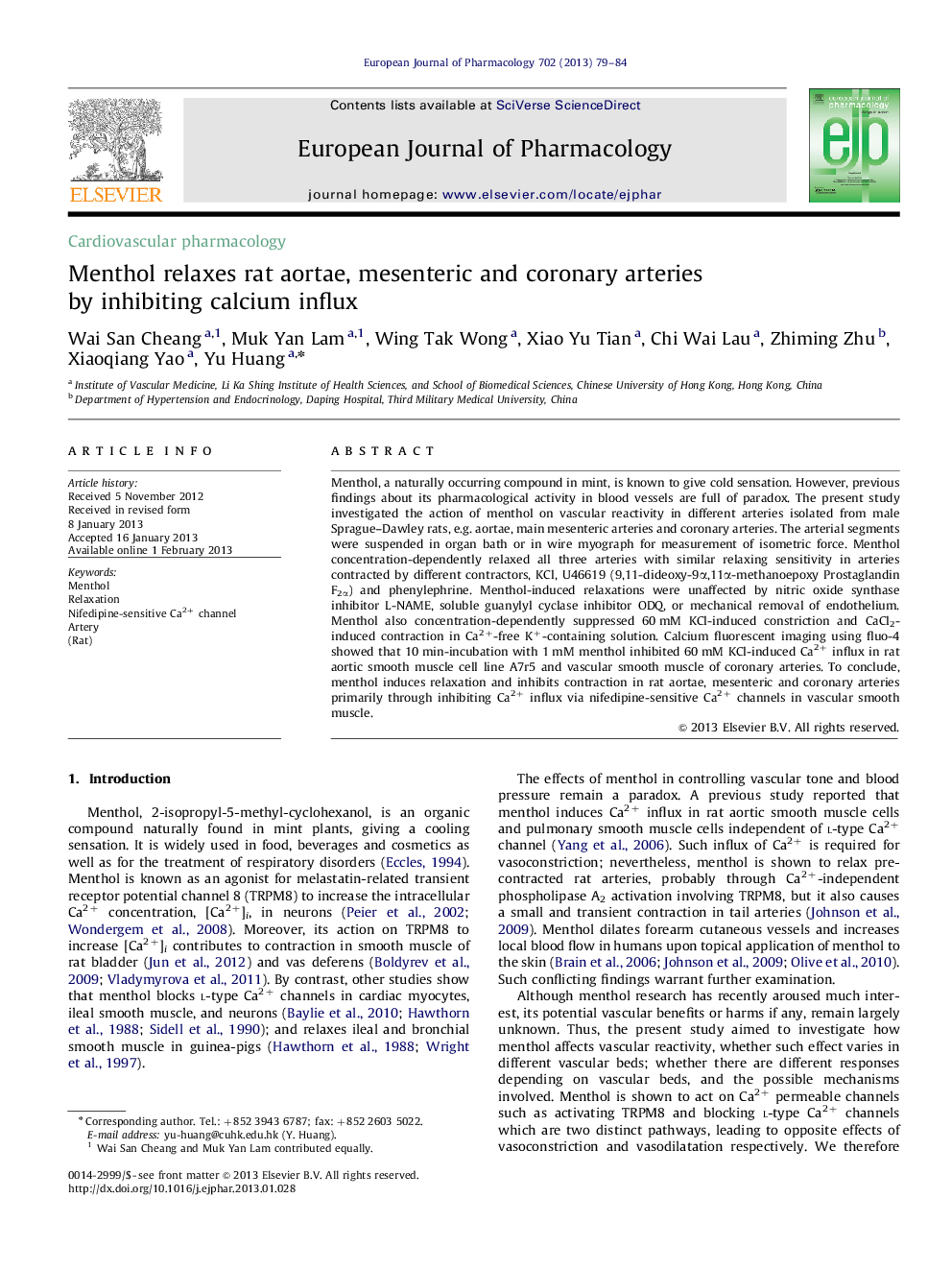| Article ID | Journal | Published Year | Pages | File Type |
|---|---|---|---|---|
| 5828706 | European Journal of Pharmacology | 2013 | 6 Pages |
Abstract
Menthol, a naturally occurring compound in mint, is known to give cold sensation. However, previous findings about its pharmacological activity in blood vessels are full of paradox. The present study investigated the action of menthol on vascular reactivity in different arteries isolated from male Sprague-Dawley rats, e.g. aortae, main mesenteric arteries and coronary arteries. The arterial segments were suspended in organ bath or in wire myograph for measurement of isometric force. Menthol concentration-dependently relaxed all three arteries with similar relaxing sensitivity in arteries contracted by different contractors, KCl, U46619 (9,11-dideoxy-9α,11α-methanoepoxy Prostaglandin F2α) and phenylephrine. Menthol-induced relaxations were unaffected by nitric oxide synthase inhibitor L-NAME, soluble guanylyl cyclase inhibitor ODQ, or mechanical removal of endothelium. Menthol also concentration-dependently suppressed 60 mM KCl-induced constriction and CaCl2-induced contraction in Ca2+-free K+-containing solution. Calcium fluorescent imaging using fluo-4 showed that 10 min-incubation with 1 mM menthol inhibited 60 mM KCl-induced Ca2+ influx in rat aortic smooth muscle cell line A7r5 and vascular smooth muscle of coronary arteries. To conclude, menthol induces relaxation and inhibits contraction in rat aortae, mesenteric and coronary arteries primarily through inhibiting Ca2+ influx via nifedipine-sensitive Ca2+ channels in vascular smooth muscle.
Keywords
Related Topics
Life Sciences
Neuroscience
Cellular and Molecular Neuroscience
Authors
Wai San Cheang, Muk Yan Lam, Wing Tak Wong, Xiao Yu Tian, Chi Wai Lau, Zhiming Zhu, Xiaoqiang Yao, Yu Huang,
